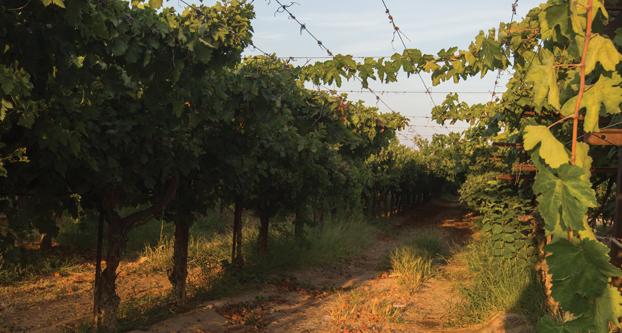A Fresno State study has produced new information that as much as $3.3 billion has been lost in agricultural revenue because of the California Drought.
Led by the Fresno State’s Water Cohort team, the research studied the impact of the drought on the eight Valley counties: Fresno, Kern, Kings, Madera, Merced, San Joaquin, Stanislaus and Tulare.
“There’s been a lot of studies on the entire state and there’s been one on the Central Valley, but there’s been nothing on the eight counties that are the heart of agriculture,” said Dr. Gillisann Harootunian, director of University Initiatives and editor of the report. “The purpose was to tell the story of the San Joaquin Valley.”
The study highlights the drought’s impact in agricultural revenue, public health, underemployment and migration, as well as residential water use.
Harootunian said the drought has severely affected the farm workers because there are less crops to harvest, they work fewer hours and their wages have gone down.
The study also says the drought has led to elevated instances of Valley Fever, West Nile Virus and diarrheal illnesses, as well as a potential increase in anxiety, stress and depression.
Harootunian said there’s an increased chance of illnesses during the drought because of standing water, which is created during drought conditions when creeks dry up and leave scattered puddles in which mosquitoes thrive.
The study was supported by the Wells Fargo Clean Technology and Innovation Grant Program.
Fresno State, along with two Valley non-profit organizations, were awarded a combined $125,000 to study the economic and social impact of the drought on the San Joaquin Valley.
The research team included faculty experts in water management, science education, civil engineering, public health, urban and regional planning, earth and environmental sciences, as well as digital library resources.
“The water cohort team came together as a round table and targeted the content. Then the specific faculty at Fresno State carried out the research,” Harootunian said.
The study includes videos and photos of Valley residents and farmers who have been impacted by the drought.
“This allows them to tell their own stories,” Harootunian said.
After conducting the research, the team is looking to take the next step.
“In each of the chapters, the faculty recommended follow up steps,” Harootunian said.
The researchers have recommended exploring non-conventional sources of water, while developing water budgets for all citizens and stakeholders.The team also hopes to spark a conversation and build awareness of water challenges.
Harootunian is pleased with reactions they have already received from the research.
“We’ve gotten a very good response, a lot of questions that ended up beginning the kind of discussions that it was meant to prompt,” she said. “I would just encourage the students to download the study and read it for themselves.”
The study can be found at the academic drought page on the Fresno State website.




